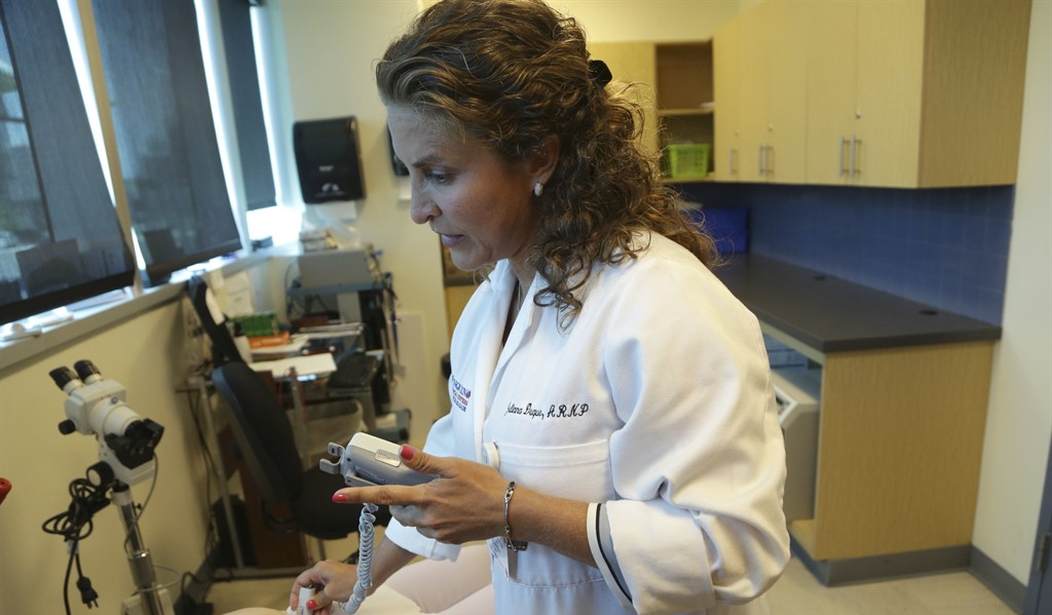Without a doubt Medicare serves a critically important role for a particular set of patients in our healthcare system. In order to keep Medicare viable and responsive to the needs of the 65 million older and disabled Americans enrolled, policymakers must make reforms. Ensuring Medicare is sustainable will only become more important as the number of beneficiaries continues to increase.
Reform is particularly needed for the Medicare physician payment system, which has been on an unstable and unsustainable path for quite some time. The financial instability of the Medicare physician payment system is being exacerbated by several factors, ranging from the economic impact of the pandemic to the high administrative burdens and costs of complying with the mandated paperwork. All of this is made worse by a glaring discrepancy in how the program reimburses physicians compared to other healthcare providers.
Over the past couple of decades, rising inflation increased medical costs across the board, including the cost of running a physician practice. In recent years, those costs have become acute as physician practices nationwide have struggled with the financial implications of the pandemic, which resulted in patients delaying care for non-essential procedures - while a growing shortage of healthcare workers increased the strain on our entire healthcare system.
The American Medical Association has found, when adjusted for inflation, Medicare physician payments declined by 26 percent from 2001 to 2023 while the cost of running a practice increased by 47 percent. Surprisingly, that is not the case for other healthcare providers in the Medicare system. Payments to inpatient hospitals, outpatient hospitals, and skilled nursing facilities, for example, kept up with the pace of inflation.
Recommended
There are two primary reasons for these stagnant physician payment rates: the first is a lack of annual inflationary updates that other Medicare providers enjoy, and the second is an ongoing statutory freeze on physician payments imposed by Congress and scheduled to run until 2026. Even after the freeze expires, however, updates will resume at a mere 0.25 percent annually, which is far below normal inflation rates.
Policymakers in Washington should work to remedy this situation before it creates even more instability in the Medicare system and doctors either decline to see Medicare patients or exit out of the profession at a time of an already significant shortage. With a whopping 40 percent of physicians expected to reach retirement age in the next decade, it will be critical to ensure the healthcare system services patients by attracting new doctors with a fair reimbursement system. Just like other healthcare providers, payments to America’s physicians should reflect the true cost of providing care and operating a practice in today’s economy—and not be stuck at nearly the same levels from more than two decades ago.
Physicians face enormous administrative and financial burdens just to comply with Medicare’s many regulations and requirements. A study by the JAMA Health Forum in 2021 found that it costs roughly $12,800 and more than 200 hours per physician, per year, just to comply with the program’s Merit-Based Incentive Payment. If we truly want to incentivize new innovations and promote advancements in value-based care, then ensuring physicians are compensated appropriately is a key step in the right direction along with evaluating the needs and benefits of those compliance burdens.
When coupled with the growing rift between the costs to run a physician practice and the actual reimbursement physicians receive through Medicare, these administrative costs—on top of existing labor, workforce, and inflation-related challenges—threaten to increase consolidation in our healthcare system, which could undermine both patient access and affordability - particularly among underserved regions and populations.
It is imperative for policymakers in Washington to find a solution to fix the issue. Fortunately, a bipartisan group of physicians serving in Congress authored legislation, the Strengthening Medicare for Patients and Providers Act. If enacted, this bill would help ensure physician payments more accurately reflect the true cost of providing care.
Not only would it result in a fairer system, but would also provide financial stability for physicians while preserving access to care for tens of millions of patients nationwide. It would also bolster our nation’s transition to a system built around value-based care. To keep Medicare strong and able to support America’s growing healthcare needs, Congress should pass this critical legislation as soon as possible.

























Join the conversation as a VIP Member